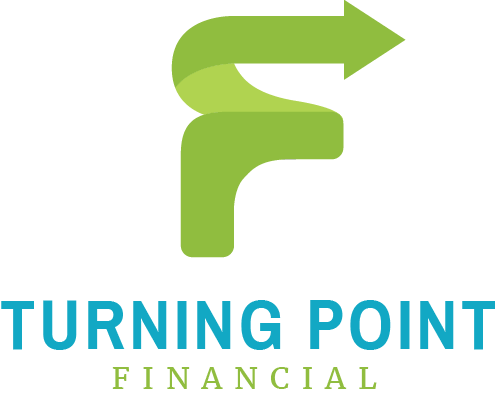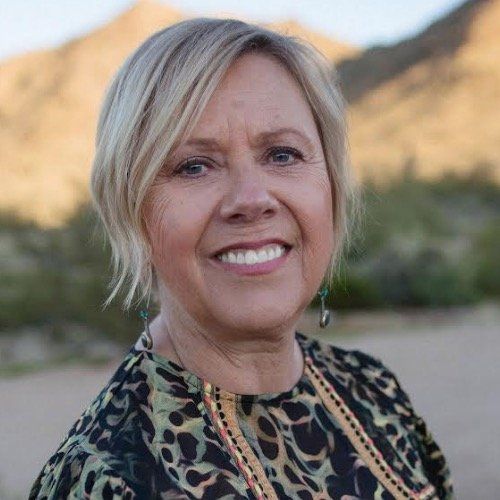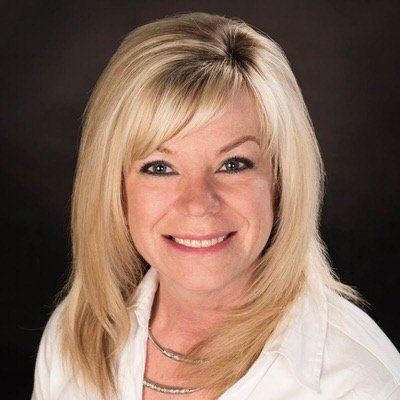OUR TEAM
Whether you’re buying your first home, facing a big decision, or feeling overwhelmed financially; we’ll bring clarity to your situation and help navigate you towards happiness, personal freedom, and financial security.
OUR PROCESS
START THE CONVERSATION
The best place to start is to connect with me directly. The mortgage process is personal, and it can be daunting. My commitment to you is that I'll listen to all your needs, assess your financial situation, and provide you with a plan to move forward.
CHOOSE THE BEST OPTION
Once we’ve had a look at your financial situation, we’ll consider a variety of mortgage options, I’ll outline what documents are necessary to qualify for a mortgage, negotiate with the lenders on your behalf, and arrange the mortgage that best suits your needs.
OUR SERVICES
Whether you’re a first time home buyer, refinancing, or renewing your mortgage, our commitment is to be there for you every step of the way.
FLEXIBLE MORTGAGES
As your life can change at any time, we offer a wide range of mortgage products.
EXCELLENT SERVICE
You can expect an excellent customer service experience when you work with us.
QUALIFIED ADVICE
As experts in the field we will listen and address all your questions and concerns.
ADVOCACY
We commit to working on your behalf to find you the best mortgage for your needs.
OUR BLOG IS KEPT UP TO DATE SO YOU CAN STAY INFORMED.
Easy access to relevant mortgage and home related information

Thinking About Selling Your Home? Start With These 3 Key Questions Selling your home is a major move—emotionally, financially, and logistically. Whether you're upsizing, downsizing, relocating, or just ready for a change, there are a few essential questions you should have answers to before you list that "For Sale" sign. 1. How Will I Get My Home Sale-Ready? Before your property hits the market, you’ll want to make sure it puts its best foot forward. That starts with understanding its current market value—and ends with a plan to maximize its appeal. A real estate professional can walk you through what similar homes in your area have sold for and help tailor a prep plan that aligns with current market conditions. Here are some things you might want to consider: Decluttering and removing personal items Minor touch-ups or repairs Fresh paint inside (and maybe outside too) Updated lighting or fixtures Professional staging Landscaping or exterior cleanup High-quality photos and possibly a virtual tour These aren’t must-dos, but smart investments here can often translate to a higher sale price and faster sale. 2. What Will It Actually Cost to Sell? It’s easy to look at the selling price and subtract your mortgage balance—but the real math is more nuanced. Here's a breakdown of the typical costs involved in selling a home: Real estate agent commissions (plus GST/HST) Legal fees Mortgage discharge fees (and possibly a penalty) Utility and property tax adjustments Moving expenses and/or storage costs That mortgage penalty can be especially tricky—it can sometimes be thousands of dollars, depending on your lender and how much time is left in your term. Not sure what it might cost you? I can help you estimate it. 3. What’s My Plan After the Sale? Knowing your next step is just as important as selling your current home. If you're buying again, don’t assume you’ll automatically qualify for a new mortgage just because you’ve had one before. Lending rules change, and so might your financial situation. Before you sell, talk to a mortgage professional to find out what you’re pre-approved for and what options are available. If you're planning to rent or relocate temporarily, think about timelines, storage, and transition costs. Clarity and preparation go a long way. The best way to reduce stress and make confident decisions is to work with professionals you trust—and ask all the questions you need. If you’re thinking about selling and want help mapping out your next steps, I’d be happy to chat anytime. Let’s make a smart plan, together.

Can You Get a Mortgage If You Have Collections on Your Credit Report? Short answer? Not easily. Long answer? It depends—and it’s more common (and fixable) than you might think. When it comes to applying for a mortgage, your credit report tells lenders a story. Collections—debts that have been passed to a collection agency because they weren’t paid on time—are big red flags in that story. Regardless of how or why they got there, open collections are going to hurt your chances of getting approved. Let’s break this down. What Exactly Is a Collection? A collection appears on your credit report when a bill goes unpaid for long enough that the lender decides to stop chasing you—and hires a collection agency to do it instead. It doesn’t matter whether it was an unpaid phone bill, a forgotten credit card, or a disputed fine: to a lender, it signals risk. And lenders don’t like risk. Why It Matters to Mortgage Lenders? Lenders use your credit report to gauge how trustworthy you are with borrowed money. If they see you haven’t paid a past debt, especially recently, it suggests you might do the same with a new mortgage—and that’s enough to get your application denied. Even small collections can cause problems. A $32 unpaid utility bill might seem insignificant to you, but to a lender, it’s a red flag waving loudly. But What If I Didn’t Know About the Collection? It happens all the time. You move provinces and miss a final utility charge. Your cell provider sends a bill to an old address. Or maybe the collection is showing in error—credit reports aren’t perfect, and mistakes do happen. Regardless of the reason, the responsibility to resolve it still falls on you. Even if it’s an honest oversight or an error, lenders will expect you to clear it up or prove it’s been paid. And What If I Chose Not to Pay It? Some people intentionally leave certain collections unpaid—maybe they disagree with a charge, or feel a fine is unfair. Here are a few common “moral stand” collections: Disputed phone bills COVID-related fines Traffic tickets Unpaid spousal or child support While you might feel justified, lenders don’t take sides. They’re not interested in why a collection exists—only that it hasn’t been dealt with. And if it’s still active, that could be enough to derail your mortgage application. How Can You Find Out What’s On Your Report? Easy. You can check it yourself through services like Equifax or TransUnion, or you can work with a mortgage advisor to go through a full pre-approval. A pre-approval will quickly uncover any credit issues, including collections—giving you a chance to fix them before you apply for a mortgage. What To Do If You Have Collections Verify: Make sure the collection is accurate. Pay or Dispute: Settle the debt or begin a dispute process if it’s an error. Get Proof: Even if your credit report hasn’t updated yet, documentation showing the debt is paid can be enough for some lenders. Work With a Pro: A mortgage advisor can help you build a strategy and connect you with lenders who offer flexible solutions. Collections are common, but they can absolutely block your path to mortgage financing. Whether you knew about them or not, the best approach is to take action early. If you’d like to find out where you stand—or need help navigating your credit report—I’d be happy to help. Let’s make sure your next mortgage application has the best possible chance of approval.

Thinking of Buying a Home? Here’s Why Getting Pre-Approved Is Key If you’re ready to buy a home but aren’t sure where to begin, the answer is simple: start with a pre-approval. It’s one of the most important first steps in your home-buying journey—and here's why. Why a Pre-Approval is Crucial Imagine walking into a restaurant, hungry and excited to order, but unsure if your credit card will cover the bill. It’s the same situation with buying a home. You can browse listings online all day, but until you know how much you can afford, you’re just window shopping. Getting pre-approved for a mortgage is like finding out the price range you can comfortably shop within before you start looking at homes with a real estate agent. It sets you up for success and saves you from wasting time on properties that might be out of reach. What Exactly is a Pre-Approval? A pre-approval isn’t a guarantee. It’s not a promise that a lender will give you a mortgage no matter what happens with your finances. It’s more like a preview of your financial health, giving you a clear idea of how much you can borrow, based on the information you provide at the time. Think of it as a roadmap. After going through the pre-approval process, you’ll have a much clearer picture of what you can afford and what you need to do to make the final approval process smoother. What Happens During the Pre-Approval Process? When you apply for a pre-approval, lenders will look at a few key areas: Your income Your credit history Your assets and liabilities The property you’re interested in This comprehensive review will uncover any potential hurdles that could prevent you from securing financing later on. The earlier you identify these challenges, the better. Potential Issues a Pre-Approval Can Reveal Even if you feel confident that your finances are in good shape, a pre-approval might uncover issues you didn’t expect: Recent job changes or probation periods An income that’s heavily commission-based or reliant on extra shifts Errors or collections on your credit report Lack of a well-established credit history Insufficient funds saved for a down payment Existing debt reducing your qualification amount Any other financial blind spots you might not be aware of By addressing these issues early, you give yourself the best chance of securing the mortgage you need. A pre-approval makes sure there are no surprises along the way. Pre-Approval vs. Pre-Qualification: What’s the Difference? It’s important to understand that a pre-approval is more than just a quick online estimate. Unlike pre-qualification—which can sometimes be based on limited information and calculations—a pre-approval involves a thorough review of your finances. This includes looking at your credit report, providing detailed documents, and having a conversation with a mortgage professional about your options. Why Get Pre-Approved Now? The best time to secure a pre-approval is as soon as possible. The process is free and carries no risk—it just gives you a clear path forward. It’s never too early to start, and by doing so, you’ll be in a much stronger position when you're ready to make an offer on your dream home. Let’s Make Your Home Buying Journey Smooth A well-planned mortgage process can make all the difference in securing your home. If you’re ready to get pre-approved or just want to chat about your options, I’d love to help. Let’s make your home-buying experience a smooth and successful one!
READ MORE FROM THE BLOG >
CLIENTS LIKE YOU
Who received the right mortgage for them.
I had a client who was referred to me by a realtor who had been told by both their bank and another broker that the property they were wishing to purchase was not able to be financed as neither the property nor the client qualified for the mortgage.
The client was dejected and skeptical but really wanted the property badly so after we met they were willing to let me go to work on the file. With a deeper review of the client’s finances and some minor restructuring, we were able to get the client into their new home.
The client said I was “magic” but in reality it’s just the difference between experience and inexperience.







